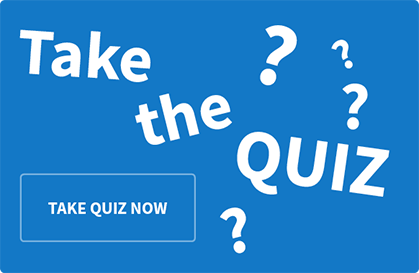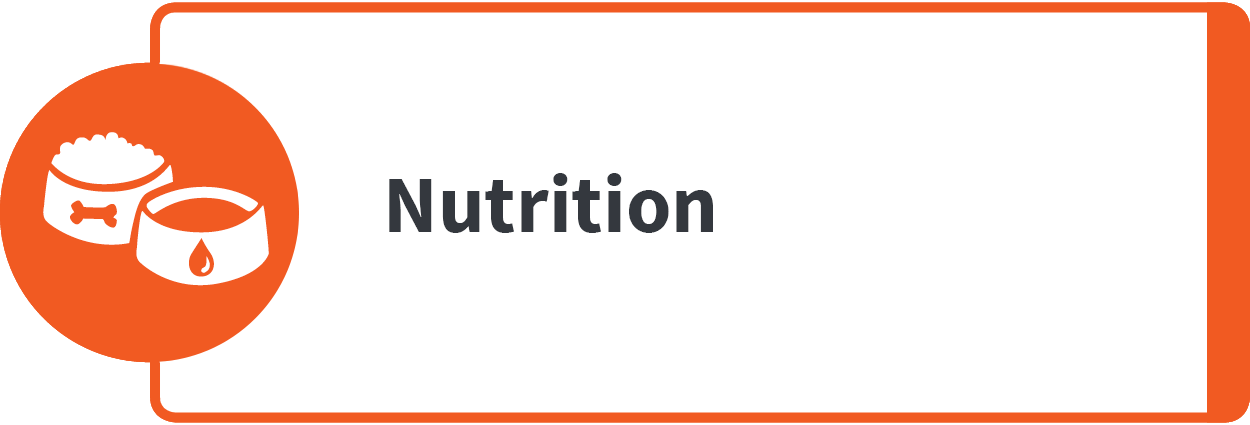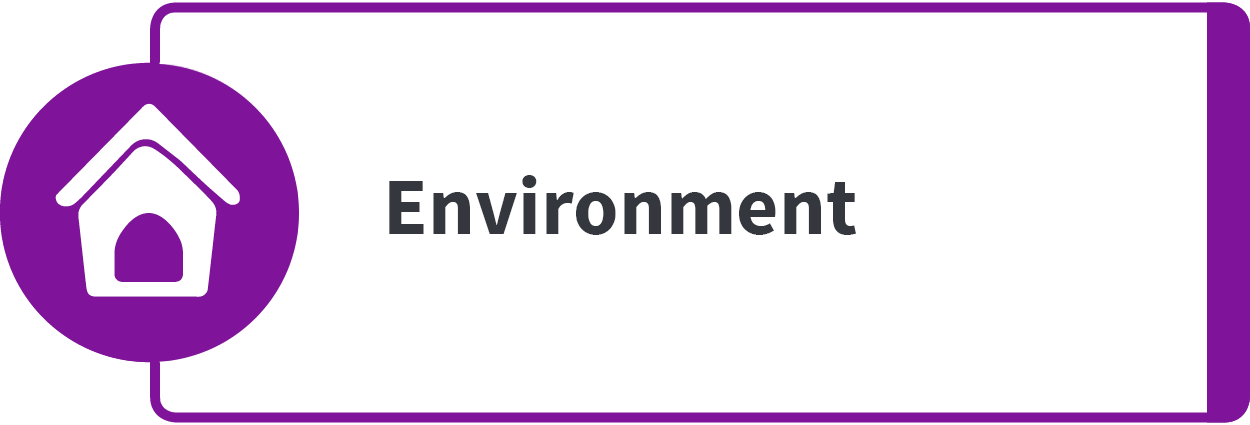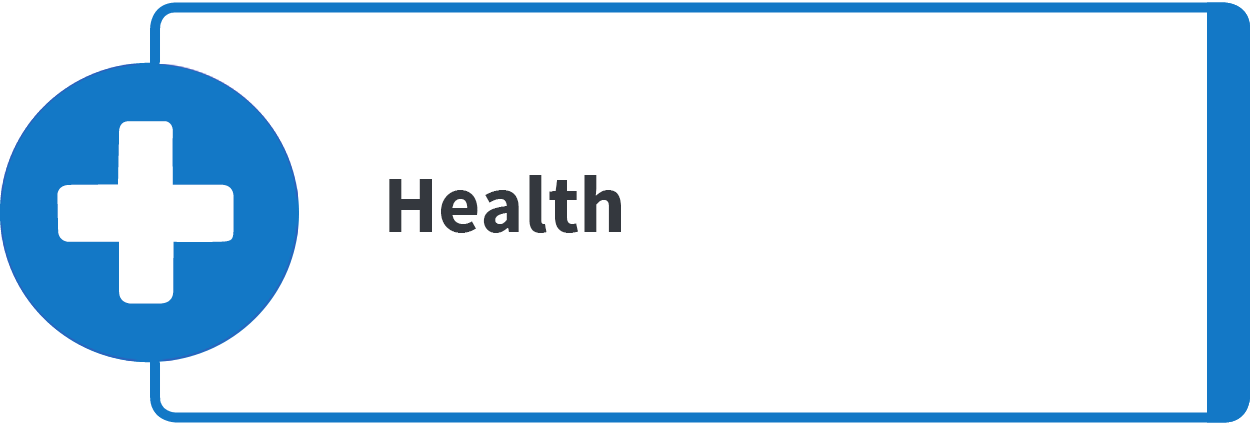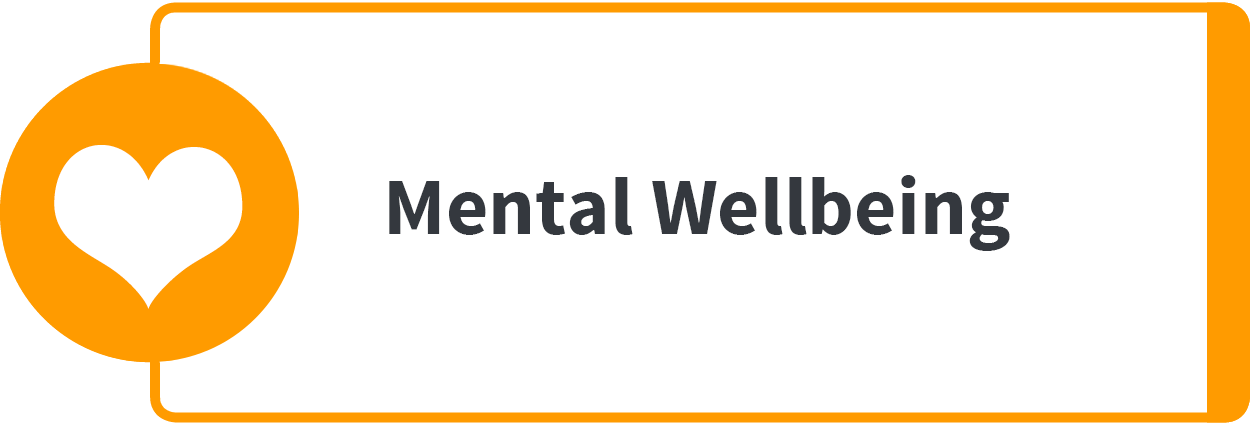Behaviour
All horses should be allowed to express natural behaviours. Behaviour refers to the way that an animal acts. An important type of behaviour that an animal expresses are those that are instinctive (what they would typically do in the wild). Enough space, proper shelter and housing, as well as company of the animal's own kind, encourages the expression of natural behaviours.
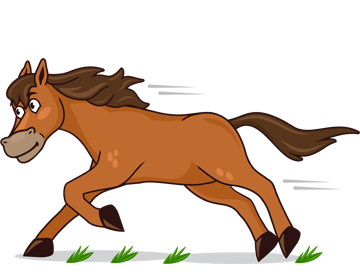
Did you know that there is a special law protecting animals?
This law is called the Animal Welfare Act. The Animal Welfare Act outlines how people must take care of and act towards animals in New Zealand. The Ministry for Primary Industries (MPI), the Police and SPCA work together to make sure people in New Zealand follow these laws.
Under the Animal Welfare Act, all animal guardians (owners) are responsible for making sure the welfare needs of animals in their care are met. Learning about the Five Domains helps us to understand these welfare needs and how we can make sure we provide these. One of the Five Domains is Behaviour. In this section you will learn about this domain and how you can make sure your horses receive the exercise and enrichment they need to express their natural behaviours.

















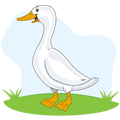
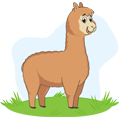
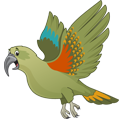

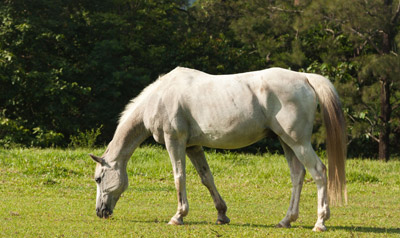 One of the most important natural behaviours for a horse is being able to graze. Horses can spend up to 15 hours a day grazing, so it is obviously very important to them. If you decide to own horses, it is very important you allow them to graze. You will need to have enough space so that the horses are comfortable, do not feel confined and have enough pasture for them to graze on and keep busy. An adult will need to maintain the horse’s pasture to make sure it stays healthy and of good quality. You can read more about this in the horse
One of the most important natural behaviours for a horse is being able to graze. Horses can spend up to 15 hours a day grazing, so it is obviously very important to them. If you decide to own horses, it is very important you allow them to graze. You will need to have enough space so that the horses are comfortable, do not feel confined and have enough pasture for them to graze on and keep busy. An adult will need to maintain the horse’s pasture to make sure it stays healthy and of good quality. You can read more about this in the horse 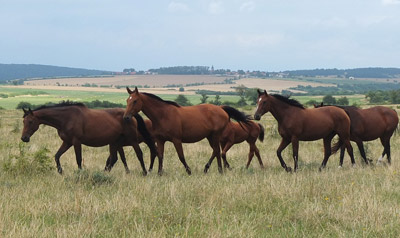 Horses are naturally herded animals and are very social. This means it is normal for horses to want to be in herds (groups of horses). If you keep a horse alone, this means you are isolating your horse.
Horses are naturally herded animals and are very social. This means it is normal for horses to want to be in herds (groups of horses). If you keep a horse alone, this means you are isolating your horse.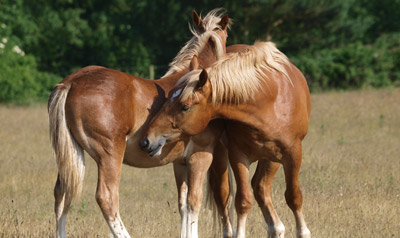 When horses are together in groups or pairs, you will notice them interacting socially with the other horses.
When horses are together in groups or pairs, you will notice them interacting socially with the other horses.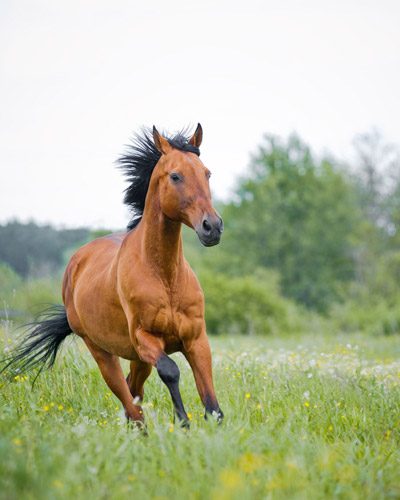 Tethering means leaving a horse tied up to one spot for long hours at a time. Some people do this as a way to contain their horse. Horses should not be tethered as it doesn’t allow your horse to express a range of its natural behaviours and can lead to your horse being frightened, being bored and sad, getting injured or falling ill.
Tethering means leaving a horse tied up to one spot for long hours at a time. Some people do this as a way to contain their horse. Horses should not be tethered as it doesn’t allow your horse to express a range of its natural behaviours and can lead to your horse being frightened, being bored and sad, getting injured or falling ill.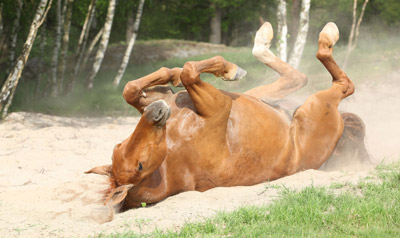 You might be a bit surprised the first time you watch your horse drop to the ground and roll over on their back, but this is completely normal behaviour for horses and something they love doing! You might notice beforehand that your horse is pawing at the ground, walking in circles or bending their knees. Then, they will drop to the ground, and roll on their back and from side to side all through the dirt! Then they will often get up and run around a bit. So why does your horse do this?
You might be a bit surprised the first time you watch your horse drop to the ground and roll over on their back, but this is completely normal behaviour for horses and something they love doing! You might notice beforehand that your horse is pawing at the ground, walking in circles or bending their knees. Then, they will drop to the ground, and roll on their back and from side to side all through the dirt! Then they will often get up and run around a bit. So why does your horse do this?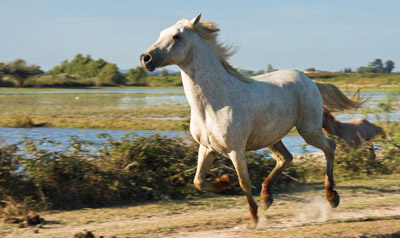 Horses need lots of exercise and freedom of movement. In the wild, horses travel many kilometres a day. For this reason, you need to make sure your horse has lots of space available in their field or paddock to explore and to run about in if they feel like it.
Horses need lots of exercise and freedom of movement. In the wild, horses travel many kilometres a day. For this reason, you need to make sure your horse has lots of space available in their field or paddock to explore and to run about in if they feel like it.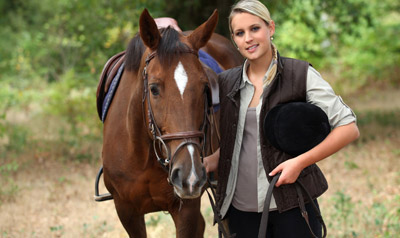 If you choose to ride your horse, you will need to start out very slowly to let your horse get used to the idea. You should also make sure you have all the right equipment and train your horse appropriately.
If you choose to ride your horse, you will need to start out very slowly to let your horse get used to the idea. You should also make sure you have all the right equipment and train your horse appropriately..png)

